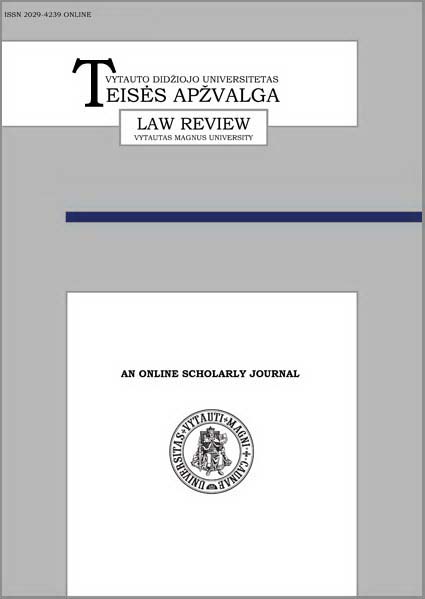The Inviolability of Right to Petition in Context of Digitalization. Comparative Analysis of Lithuania, Latvia, Estonia and Poland
The Inviolability of Right to Petition in Context of Digitalization. Comparative Analysis of Lithuania, Latvia, Estonia and Poland
Author(s): Karolis KubilevičiusSubject(s): Law, Constitution, Jurisprudence, ICT Information and Communications Technologies, EU-Legislation
Published by: Vytauto Didžiojo Universitetas
Keywords: Petition; e-petition; Digitalization; European Union;
Summary/Abstract: The fourth industrial revolution is changing the society at an unprecedented pace. All of these advancements lay foundation for new technologies in various industries: autonomous vehicles, autonomous weapons, internet of things, drones, etc. But while the world is focusing on a vast array of different technologies and their legalization, it is not yet clear how democracy and human rights will withhold or adapt to the vast digital globalization and the upcoming digitalization. Consequently, in this article the author focuses on the right to petition and its inviolability in the context of digitization. The analysis is done comparing EU and four of its member states: Lithuania, Latvia, Estonia and Poland. In the first paragraph the author analysed the concept of an e-petition. It was established that an e-petition is a complaint, request or a demand regarding an issue or an infringement, filed through an electronic device or published online, by a natural or a legal person, in accordance with applicable laws and (or) rules of an appropriate platform, individually or in an association with others. In the second paragraph the author analysed the right to e-petition. It was established that every single country that was analysed in this article directly or indirectly ensures the right to an e-petition to their citizens. In the third paragraph, the author found out that both petitions and e-petitions have an equal chance to be reviewed, as long as they are submitted in accordance with valid regulations and procedures. Finally, author concluded that the right to petition remains inviolable in the context of digitalization.
Journal: Teisės apžvalga
- Issue Year: 2020
- Issue No: 2(22)
- Page Range: 3-20
- Page Count: 18
- Language: English

